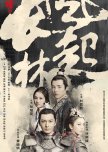
Nirvana in Fire Season 2: The Wind Blows in Chang Lin
76 people found this review helpful
This review may contain spoilers
I binge watched this drama in 2 days after finally deciding I was going to give it a shot. Updated edit after a rewatch: I'm hesitant to compare this against NiF 1 anymore (even though I still do think it was better produced, I'm more emotionally attached to the characters in NiF2) because I think they're such great companion stories for each other. While 2 is a sequel (it takes place about 50 years later after the first), it's an entirely different story with a different premise. Prepare for an emotional rollercoaster - this show will earn your tears and your emotional investment. Story
The story focuses on the family of the general of the Changlin Army (the army that was created in Mei Changsu's memory). Ting Sheng, the head of the family and of the army, was one of the slave boys that Mei Changsu had saved in the original, and was later adopted by Prince Xiao Jingyan. Ting Sheng's oldest son, Xiao Pingzhang, is his right hand man and the named heir, while his younger son has lived a spoiled and sheltered life (in the sense that his family lets him have a lot of freedom and not have to worry about the responsibilites of being in a military family) and spends most of his time on Langya Mountain. Both sons are supremely talented - Ping Zhang is an incredible military strategist and represents his family in court with the Emperor to navigate the political waters. Ping Jing, while young and a bit brash, has had his sharp instincts honed by his father and brother and has street smarts in spades. While very different, the two brothers are very close, and much of the first half focuses on their family's bond.
While the original story focused on one central storyline, the sequel follows the ups and downs of the Changlin family - because of this, the plot isn't as tight as the original as it is much more complex. The political stuff was a bit too much at times (and infuriating), but the reasons behind most of the conflicts were logically sound.
One of the pluses of the drama was that there was a strong focus on relationships - be it family (THE CHANGLIN FAMILY - ugh, I'm still recovering from all of the feelings), romance, friendship, the bond between a person in power and those who serve him, or the relationship between the past and future (sooo many name drops - it was kind of fun to figure out who was related to a character in the original story). The original had elements of this of course, but due to the story being about the Changlin family (who are also a military family), the emphasis on interpersonal relationships is much greater. The romance was also much better in this one than the first, in my opinion - Ping Zhang and his wife have such a great, healthy relationship and the mutual respect (and love) that they have for one another is wonderful to see. The younger couple was cute as well - and I liked the fact that while both could lead very independent lives, it was the times that they were together that made them the happiest.
Probably one of the biggest criticisms of the show is that it is centered around a boy/man who is barely 20 when the story begins - but to me, this is one of the best selling points of the shows. Perhaps younger viewers may not appreciate this, but the freshness and youthful enthusiasm of Pingjing was an absolute delight (more so because is he is played by someone who is right at that age), and watching him grow up and mature was both bittersweet and awesome. There are times where you wish he was more self-aware, but he's not a stupid character - just a very young one, and that's part of the charm. I can honestly say Pingjing is probably my favorite drama protagonist in the last...I don't even know how many years.
There's also this bittersweet satisfaction knowing that we are, in a way, watching what the 19 year old Lin Shu would have been like, because we never got see him go through that growing up process - we went straight to adulthood. It's noted by several characters that both Lin Chen and Xiao Jingyan, who were probably Lin Shu's best friends, were both incredibly fond of Ping Jing and spoiled him accordingly - in part because they are very similar in personalities, though obviously the roads they walked were very different. It's a subtle reference that I really enjoyed - they are not the same people at all, but the spirit of Lin Shu/Mei Changsu lives on through Pingjing.
I found in particular the discussion of nature vs nurture to be pretty interesting - this is a topic that is pushed pretty hard in the drama, as the debate follows multiple characters who walk on different paths. The idea of fate is also nicely interwoven in - no matter how much effort we put in, no matter what choices we make, are we always going to end up at the same destination?
(Edited after rewatch): This isn't the same story as Nirvana in Fire and if you're expecting that, you're already going to be disappointed. NiF was a story of triumph, of redemption (more so than revenge, in my opinion), mingled with bittersweet elements. Mei Chang Su set out with a specific goal in mind so he had everything planned out and the climax was when he obtained that goal at the very end of the series.
NiF2 is very different - it's more like a chronicle of the Changlin family, with a specific focus on Pingjing and the people around him. For some people, the climax of the story probably happened around episode 36, and I agree, to a certain extent. I think the point of the story isn't about the fall and redemption of the Changlin family - it's about family and bloodlines; it's about growing up and living with yourself and the choices that you make. I understand what people mean by the anticlimatic ending and the final arc (and I do agree that the writing was a bit poor towards the end), but to me, it felt right and matched everything we had learned about all the characters up to that point.
Acting/Cast:
Huang Xiaoming and Liu Haoran as the two Changlin brothers exceeded expectations for me. This was also a heavily criticized decision when the production first started, because Huang Xiaoming is known as an idol actor, but like Hu Ge before him, he turned in a strong performance - if HXM doesn't overact, he has this natural warmth that comes from his real life personality and it worked so well for his big brother role. Seriously, never doubt these directors - they know what they're doing when they cast people (well, for the most part - see below for what I didn't like about the casting choices).
Pingjing was a really tricky role to play (and to cast for) and I feel like it has to be acknowledged - you're talking about a story that spans about three or four years and the character goes from a carefree, sheltered prince to a solemn, matured young general (this isn't a spoiler - it's in the synopsis). So basically your casting options would be: 1) Pick an older actor (early to mid 20s) - a la Hu Ge in The Disguiser - which...wasn't great. They would be able to handle the second half well, but you would cringe your way through the first half. If people already think (then) 19 year old LHR was a bit hard to watch acting as a 20 year old, I have no idea how they'd tolerate this.
2) Pick a younger actor (late teens, presumably) and hope that they don't look like a child pretending to be an adult when they reach the second half. In the Chinese market, there just simply aren't a lot of candidates that would fit all the criteria (age, looks, height, acting talent, public recognition, temperament, demeanor, and ability to pull off both arcs). As great as Daylight Entertainment's reputation is, they also have to have someone who has some degree of popularity as the main role. The word that is most associated with Liu Hao Ran on Chinese media is "youth" (even before NiF) - it's not his age, necessarily, but a spirit that he has in spades - and it served him so, so well in this role. He was able to rely on it to carry him through the first half, and then the natural contrast between his youthful demeanor and the burden on his shoulders really tugged at the heartstrings in the second half. I cried when he cried, I laughed when he laughed - he embodied the character perfectly for me. He's not a polished actor by any means - but he's got a good foundation and definitely grew as an actor throughout the drama. Again, he just turned 19 when he filmed this - 19!
The shining star in terms of acting though, definitely goes to Sun Chun, who plays the brothers' father. What a masterful performance by a veteran actor.The character felt 100% real and he really fleshed out every aspect of Changlin Wang - as a father, as a friend, as a brother, as a general, and as a loyal servant of the Emperor. The way he delivered his lines - oh man. If China actually did legit drama awards, he deserves one.
Sun Chun, Huang Xiaoming, and Liu Haoran also had phenomenal chemistry as father and sons which made some of the later scenes all that more emotional for me. (If you want something cute, go look at their weibo comments and posts to each other throughout the drama - it's like if the family lived in the modern age and could access social media, ha. Some of the other cast members also occasionally pitch in their opinions on where the story is at).
Squeals for Zhang Bo, who was great as the head of the Imperial Guard - I will never ever forget his performance as Sun Quan in Three Kingdoms about seven years ago and he was just as awesome in this role. He just has this natural charisma and gravitas that works so well on screen (and gets better as he ages). Why is he not more popular?! Tong Liya and Zhang Huiwen turned in decent performances as the main two female leads (though of course like the first one this is a very male-dominated cast) - Tong Liya in particular had some great scenes. I liked Zhang Huiwen's Lin Xi, but wish she was used more, particularly in the second half. Guo Jingfei probably had a blast in his role and I was torn between laughing because I knew he probably enjoyed the performance and also superbly creeped out because he turned in a very good acting performance.
I am conflicted on how i feel about Wu Haochen, who plays a pretty important role. I think his acting was solid (especially in the final arc - he was phenomenal), but somehow he just never visually fit into the part and it became distracting to a certain degree. I know that there's been a lot of comments about his appearance and I've never really been all that concerned about looks when it comes to acting, but the visual presentation took me out of his scenes more often than not. I had no issues with him in Ode to Joy, so I wonder if it's because he doesn't quite fit the "gu zhuang" look. I also just never cared about him - especially in the second half - I just wanted to see more of Pingjing - and I think that's because while Wu Haochen did a good job acting, he never made me feel anything about the character. In the original NiF, Prince Yu (played by Victor Huang) was definitely not a protagonist but I really felt for him (and part of that has to do with charismatic Victor was in the role).
If there is one criticism that I have of this production team, it's their tendency to reuse actors that they've casted in previous shows - sometimes I like it as it's kind of like spotting Easter eggs, but sometimes it can also be very trying. I wasn't fond of the casting choice of Qiao Xin (she was already in the original as the oh-so-memorable-for-bad-acting Nian Nian!!). It'd be one thing if they reused an actor with great acting talent, but Qiao Xin is definitely...not that. Also, you could have done away with her character completely and it would probably been fine - I just found all of her scenes completely unneccessary.
The cast overall (especially the veterans) weren't as phenomenal as the supporting cast in the original, but the main cast really carried the show well, so it was okay.
Music
I love how the music is the same, yet just a tiny bit different. It brought back just the right amount of feels. The theme song has two different versions and has a much more stronger tone than Hu Ge's song in the original - probably due to the more military, war-bent nature of this one.
Rewatch Value
I took one star off because there were about ten episodes straight where I was just crying nonstop and I don't know if I can handle that again. But the emotional roller coaster is worth it, and I think I will definitely be rewatching very soon.
Overall
This is very different story than from the original Nirvana In Fire. As I mentioned previously, I think the first was a better production overall, but the second one has me invested way more in the characters, and if you don't mind a younger main character (and are interested in watching a growth arc), i think you may find the show a blast to watch.
Sequels are probably never going to live up to the original, but I love that they changed almost everything (the story, the cast) and still maintained that definite "Nirvana In Fire" vibe - it is definitely worthy of being considered a quality stand-alone show.
Was this review helpful to you?
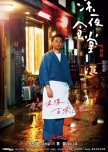
Story:
Like the original manga/Japanese drama, the center of the drama is the owner of a diner that only opens from midnight to 7am, and the stories revolve around his diner customers (some are regular, most just happen to pass by to tell their story, and life goes on). Every storyline features a specific dish, and usually lasts anywhere from 1 to 4 episodes.
One of the biggest issues that I have with this show is the inconsistent tone - and that may be directly connected to the way they use Master (played by Huang Lei). There are stories where he's like his Japanese counterpart and is merely a wise observer and supporter of the world around him. But there are other stories where he's basically inserted himself into his customer's lives that feels almost intrusive and very unlike the Master. Of course, if you haven't seen the source material, this may not be an issue, but Midnight Diner isn't supposed to be about the Master - it's supposed to be about the stories of its customers. I also read that because this was such a sprawling drama, the director ?of Black & White!) had to pull in some other directors to film certain episodes, which might also contribute to the inconsistency.
Due to this, there are certain stories that I think excelled more than others (and you can definitely pick the episodes you want to watch without missing anything) - and when the drama did it right, it did a phenomenal job of integrating social commentary, humanity, and sentiment. I didn't really care for the stories of the regulars though, who were mostly there for comic relief and played by unconvincing actors.
The standout stories, in my opinion, would of course feature the one starring Mark Zhao and Qi Wei, which also got the most publicity. The story of a deaf single father, his adorable five year old daughter, and the mother that comes back into their lives left me completely wrecked emotionally. It had a couple of weird plot holes, but was one of those stories that I can totally see standing alone as a movie and totally succeeding.
But my absolute favorite was the "Red Braised Pork" episodes - featuring a bitter, retired ex-surgeon who is paralyzed from the waist down, and his caretaker, a simple woman from the countryside who just wants to give her baby son a better life. This was such a realistic depiction of two Chinese social trends - the regard of the elderly as a burden on their offspring, and the sacrifices workers from the countryside have to make for a better tomorrow.
There's a couple of other cute stories in here - the one featuring Cherrie Ying, for example, was short and bittersweet, but very realistic. It really kind of shows that the snippets that we see via the show are just that - they're little moments in a person's life, but it's fleeting and temporary, and whatever situation they're going through eventually passes, and life goes on for everyone. It doesn't mean that we need to belittle whatever we feel in the moment, but instead appreciate that time, as cruel as it may seem, never stops.
Acting/Cast:
I'm 80% convinced that Huang Lei took this role (aside from the fact that he's a producer) just so he can cook. Those who follow Chinese reality shows know that he is especially known for his love of cooking. Because to be frank, I think he was miscast for this role (and the script didn't help in that regard). Huang Lei's not a subtle actor by any means - he emotes a lot with his eyes, and it was a little bit too much at times in this. It sometimes took me out of the scenes because he was basically hinting at emotions that probably weren't even supposed to be there.
As I mentioned earlier, the recurring actors were mostly annoying and used for comic relief (thought not well). The guest stars were usually much better, and were given much more nuanced stories as well.
If this was a movie, Mark Zhao would probably get an award of some kind (and he still might - there was a lot of buzz about his appearance) - that's how good he was with a surrounding cast that wasn't as strong. Mark aside, the little girl who plays his daughter was absolutely delightful and nailed her parts, and Qi Wei, who has not impressed me in most of her dramas, was surprisingly good and moved me to tears.
Jin Shi Jie and Liang Jing, the stars of the aforementioned "Red Braised Pork" story, were absolutely fantastic. Both seasoned actors renowned for their acting skills, they pulled off the banter and the emotional baggage of their characters with remarkable skill, and showed phenomenal chemistry as well.
Other standouts: Janine Chang's turn as an actress with a sad past was touching despite weak directing and a really weird performance by Huang Lei. Cherrie Ying is still great at bubbly, outgoing characters. And Liu Hao Ran is definitely in line for the next generation of leading actors - he was the saving grace of a story that was basically asking for your tears, and yet I was never compelled to give in until he started crying.
Music:
The music was absolutely perfect for this show - the songs were a nice mix of introspective, observing, bittersweet, and uplifting.
Overall:
Sometimes it's nice to watch a show that's just about life - all the ups and downs, the little moments and the life defining ones. Despite its flaws, the drama did what it was intended to - it makes you feel, and it makes you think about the stories of those around you. In a drama landscape that is filled with , spies/military intrigue, wuxia, family drama and fantasy, this was a breath of fresh air.
Was this review helpful to you?

Huang Xuan and and Japanese actor Shota Sometani star as the leads - but really they are merely tools for the narration of this story, which honestly kind of took me out of the core story at times. I get that the original novel used this element as well, but I do think it felt a little extra at times - that we were sacrificing the meat of the story to give the two stars more screentime. Huang Xuan plays Tang dynasty poet Bai Juyi, and it was kind of a weird performance from him. I think part of that is the director's fault, but the character was just a bit all over the place. Shota Sometani's Kukai was much better, and he gave a pretty good performance as the somewhat mysterious monk (yes, all the Japanese actors have their voices dubbed - though they do have some lines where they speak Japanese). The two pair up to find out why a demon cat has been haunting the capital.
The real story revolves around the famous (or infamous, depending on who you ask) Yang Guifei, the imperial consort of the Emperor Xuanzong - and the circumstances surrounding her death. This is the part of the story where it becomes purely fictional and speculative - but it was definitely the most interesting part of the film. I don't know where I read this, but apparently in the novel, the author had described her being of mixed blood, so the casting of Sandrine Pinna makes a little bit more sense (as you can imagine, mainland audiences were not impressed by a Taiwanese/French Yang Guifei).
Sandrine is gorgeous in her role (seriously, she looks absolutely stunning in ancient costume) and had a dignity and loneliness to her that suited the character well - the only thing that kind of throws you off is that Yang Guifei has been known historically as having a very voluptuous figure (Sandrine is on the slender side). Yang Guifei is so famous for this in China that it has become part of her characterization - and it was more noticeable because actress Kitty Zhang, who plays another character in the film, does have that kind of figure. I imagine they wanted Sandrine more for her face and overall presence so it's not a huge deal - just an interesting note.
I would have liked to seen more of Zhang Luyi's Emperor Xuanzong and gotten a glimpse of what exactly he was thinking throughout the film, but I guess it doesn't really matter in the grand scheme of things. The love that they had for each other could have also done better - I think I got a pretty good hint of what their relationship looked like, but I do think it could have been explored more since it was such a crucial part of the story. Hiroshi Abe's character was also an interesting foil to the Emperor.
Liu Haoran and Ou Hao are the two youngsters in the cast and let's just say I was quite surprised by their importance to the story, especially Liu Haoran's Bai Long. I've seen the BTS clips of the way they're styled for the film and wasn't sure how I felt about it, but it's pretty stunning once you see them in motion. Liu Haoran famously lost 20 pounds for the role after Chen Kaige looked at him and said he was a little too chubby (which I think is ridiculous because the boy is already built like a stick), but it worked well for the role visually. The two's characters also added a dimension to the story that I wasn't expecting, but welcomed as it actually made the story come alive for me.
I think I've used the word "visually" probably at least six times already - and that kind of goes to show where most of the thought went into for this film. The core storyline was interesting, but screentime was limited - Huang Xuan and Shota Sometani probably had triple the amount of appearances than anyone else. Considering that they aren't directly involved, it just slows the pace down significantly and makes the transitions seem a bit choppy (it also disturbs your emotional attachment to the characters). But if you cast stars, you've got to give them screentime, right?
This was an ambitious attempt by the director, and the film covered a wild variety of themes and motifs, but probably bit off more than they could chew. Still, I enjoyed it for what it was a - a treat for the eyes and an explorative look at a well known story and characters.
Was this review helpful to you?
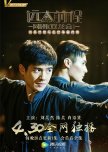
Story:
Set in Tianjin in the mid to late 1920s (Republican era), we are introduced to Huo Zhen Xiao, who is the estranged son of legendary mob boss turned business tycoon Huo Tian Hong (a character in the main drama) - and his mom, who left his dad years ago and raised Huo Zhen Xiao on her own, is also descended from a long line of gangster bosses. As a result, nineteen year old Huo Zhen Xiao is a young man who grew up in wealth and was raised to fear nothing and no one - and to make things even more interesting, he happens to be enrolled in military school in a time when much of China was in turmoil due to the May Thirtieth Movement (wiki it if you want to learn more - it's an interesting part of Chinese history that isn't covered all that much in dramas or film). Huo Zhen Xiao and his three military school buddies don't actively participate in the anti-foreign demonstrations, but they make their stamp in the movement by using their fists to fight back against the foreign police and protect their fellow citizens from the terror.
As punishment for fighting back against the foreign power, Huo Zhen Xiao and his buddies are sentenced to Tianjin's most notorious prison for four months. And that's where the bulk of the story lies - Huo Zhen Xiao's adventures in TIanjin's cruelest prison, and his encounter and budding friendship with fellow prisoner Chen Zheng, who is an orphan and grew up on the streets.
If there's one thing Chen Si Cheng is really good at with his scripts, it's pacing - and while you can never say his storylines are original, he's able to inject something fresh and innovative to it. In the case of Twin Dragons, he took advantage of the fact that this is web-exclusive and isn't necessarily held to the same restrictions that dramas shown on satellite TV are held to - so he pushed the boundaries a bit both in terms of the storyline and the characters, which I really enjoyed. Not to say there aren't bugs or holes in logic - but the fast pace of the story and the interesting characters (and phenomenal acting) makes it easy to overlook the issues. Plus - it's a short, side story of a drama - we really don't need to think too much about logic here.
Huo Zhen Xiao was a fascinating character - he was the protagonist and had a patriotic bent due to his military school education, but at the same time there was a cruel streak in him that was the result of his background as the son of mob bosses. While I loved the heroic side of him - he's an awesome fighter, intelligent, and so, so fangirl worthy - I also loved that he saw the world differently from most of the Republican-era heroes we are used to due to his unique background. He very much follows the philosophy of an eye for an eye, and had some moments that just made your jaw drop because of how...mobster-like it was.
The character of Chen Zheng was also really interesting. Much like Chen Si Cheng's Hong San Yuan in the main drama, Chen Zheng's character is an ode to Wei Xiao Bao of Jin Yong's The Deer and the Cauldron. He's a ruffian with street smarts in spades, and probably has committed many petty crimes in his past - but he still has somewhat of a moral code. While he's at odds with Huo Zhen Xiao initially (mostly because he can't beat him), their budding friendship and respect is awesome to watch, and I really, really hope that Chen Si Cheng saw the praise that Twin Dragons got online and will allow us to see these two characters and their adventures again one day.
Also - can I just say I love the cinematography of this? I looked it up and apparently that's the director's specialty. The whole thing just felt very film-like.
Acting/Cast:
A thousand cheers for Liu Hao Ran, who basically elevated this short drama to another level with his potrayal of Huo Zhen Xiao. The storyline is interesting, but its various flaws and bugs would have been a lot more noticeable if it wasn't for the sheer magnetism of Liu Hao Ran's acting as the young mob boss prince who doesn't back down from anyone. This drama was filmed shortly after NiF2 wrapped up, and the progress that Liu Hao Ran has made as an actor is extremely noticeable here - and he has a presence and charisma that makes you forget he was only nineteen when he shot this. This is the performance that made me want to see him as an antagonist one day - because there are several moments when Huo Zhen Xiao's mean streak peeps through that makes me think Liu Hao Ran would be able to handle a character on the dark side.
Chen Hao is awesome as well - it's pretty much his first introduction to the industry as his other acting projects haven't come out yet, and he was absolutely fabulous as the wise-cracking Chen Zheng who has big dreams but feels dragged down by his reality. While Liu Hao Ran's Huo Zhen Xiao got the cool parts, Chen Hao was responsible for carrying the comedic element of the show and he was able to do it well without overacting.
Both young actors also definitely benefited from the fact that the screenwriter is their boss, haha, as he wrote the characters with both of them (and their acting abilities) in mind.
The other cast members were great as well - particularly the antagonists, who were so, so creepy and twisted - but man they carried it well. Also Huo Zhen Xiao's mom is all kinds of fantastic.
Music:
I'm impressed because despite the fact that this isn't an official drama, the music was great and matched the scenes perfectly (props to the editing team).
Overall:
I absolutely loved this - not just because of Liu Hao Ran, but because I really do think that you can see the effort (and budget) put into this reflected in the quality of the production. Using only six twenty-minute episodes, we got a pretty complete short story with characters that felt alive - and I walked away from this wanting to see more of Huo Zhen Xiao and Chen Zheng, and how they take on Shanghai. If you like the premise and are in the mood for something fun and intense in the early Republican-era, I absolutely recommend checking this out.
Was this review helpful to you?
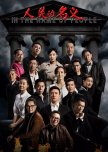
If you asked me to describe this show simply, I would probably liken it to a modern version of Nirvana In Fire, which sounds kind of ridiculous since the contents are so different. While the political intrigue is an integral part of both shows, neither forgets to insert some heart and some solid storytelling to weave its magic - and of course, both shows count on some amazing performances from a largely veteran cast.
Story:
The premise of this show is pretty simple - it's about exposing corrupt government officials, and the twisted web that they weave in a fictional city (and province) in modern China. (FYI - in recent years, with the rise of the new GS, the government's been really cracking down on corruption, especially within government officials, which is why they were okay with turning the novel into a drama).
While Prosecutor Hou Liang Ping is technically the main character, this is really a story about many different people, and how their lives are tied together. The main focus, of course, is telling the politics in a modern Chinese city works, and the scriptwriter does a phenomenal job of outlining many of the problems in Chinese society today without making it too black and white. Because too often, there isn't a clear cut answer, but just acknowledging and highlighting the issue is a major win for citizens.
In this same vein, the characters, even the ones who are exposed to be corrupt, are portrayed in an ambiguous light (and I mean that in the best way). One of the biggest issues with a lot of the shows about political intrigue is that the show is too eager to cast judgement on a character for the audience, but here, you can use your own judgement to decide what you think of a character and his or her actions. Almost all the characters are portrayed in a fairly complete light - so you'll have the full picture of what kind of person they are, what they have done, and why they have done it.
The pace is phenomenal - the first few episodes will leave you absolutely reeling as you're thrown right into a case that opens up the rest of the story - but then it slows down to allow us to catch our breath and to learn a little bit more about the situation and the characters. I think there were some unnecessary scenes, but there was obviously a big attempt to balance the dark and heavy with some light, slice of life moments, and I really did enjoy peeking into the lives of the characters.
Beware - there's a lot of low key and high key propaganda in here - I mean, it is a state-backed show - so it might be a little disconcerting if you aren't used to it, but I didn't find that it took too much away from the story, which was mostly very well thought out, as layers are unpeeled and you learn more and more about just how tangled the web really is.
Acting/Cast:
This show featured probably one of the phenomenal casts in recent history, with a slew of talented, well known veteran actors, who took the roles and absolutely made it their own. In particular, Wu Gang and Zhang Zhi Jian, as opposing politicians, gave amazing performances that gave their characters, who were already interesting, even more depth. Hats off to the other established actors as well (there's too many to name, honestly), in particular Hou Yong, who is probably the reason why a lot of people kept watching the show, as he guest starred in the first couple of episodes as a small town politician and gave an absolutely electrifying performance, and Bai Zhi Di as the elderly retired Chen Yan Shi, who was a cynical and jaded ex-prosecutor and totally reminded me of my own grandfather.
I also loved Ding Hai Feng as the playful police commissioner and Ke Lan, who was a smart, sassy, and hilarious female prosecutor - the two of them often stole the scenes that they were in. If someone ever wants to do a spinoff based on these two, I'm definitely in.
Zhang Feng Yi, who I love, was sadly wasted in his role - he did what he could with it, but it really wasn't an interesting character since Sha Rui Jin was probably the most straight laced character in the entire show (aka boring). He is such a talented actor and I really wanted to see him in a more riveting role.
Lu Yi has received a lot of criticism for his acting, some of which is valid, but a lot of it is a bit unfair given how talented his costars are. Lu Yi does more idol dramas than anything else - I mean, he's not going to be amazing. He was fine - not great, not bad - but serviceable. And considering his character really was just meant to be a foil to some of the other characters so there really wasn't much depth there, he didn't need to be amazing.
Ensemble casts are the best when everyone's performances are elevated, and that's how I felt here.
Overall:
I think you have to have some context of what modern Chinese society looks like to be able to really enjoy this show - even though a lot of the main characters are politicians, there's a relatability factor to it that really strikes a chord with the audience as the show touches on various social issues. I am pleasantly surprised by how much I enjoyed this show to the point where I'm still discussing it with my parents. For those who dismiss this show as pure propaganda, I feel that's a bit unfair to a well thought out, well acted drama that does have a lot of fantastic social and political commentary. I would definitely recommend it!
Was this review helpful to you?
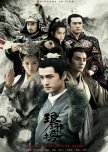
Story:
I tend to be a little wary with Chinese historical dramas, because too often you get bogged down by all the palace politics and it might be intriguing for some people, but not for me. Nirvana In Fire didn't let itself get fixated on what was going on in the palace - Mei Changsu was the heart of this story, and it's so refreshing to have a drama with such an (actually) intelligent character. I'm hesitant to label this as a revenge story - I actually see it more as one of redemption. Mei Changsu was a beautifully complex character, who was once a noble and upright young man and has been hardened and jaded. That doesn't mean he's lost his moral compass, but he is no longer as innocent, and it's reflected well in how he manipulates the people around him. I loved how deftly Mei Changsu handled every situation - not that Plan A always worked out - but while he always tried to maintain several steps ahead of his opponents, he was also well aware that wasn't always possible. Prince Jing's character was essential to the story, and while I did find his sense of right and wrong tiring at times, it was awesome to see his friendship with Mei Changsu develop. Despite being fifty episodes, there wasn't a dull moment, and the writing was intelligent and well thought out, without being confusing and overwhelming. The direction was beautiful and everything was well shot - it had a very cinematic feel to it.
Also - I actually really liked the fact that the story is not based on real history. It means that the writer has a little more leeway with her characters. I especially love the existence of strong female characters here - one is a detective and one is a general, and they are both so awesome.
Characters/Acting/Cast:
The fanwars aside, this cast was absolutely amazing. I love ensemble casts because the story doesn't depend on one star - instead, they can play off each other and bring the best out of one another. With that said, props to Hu Ge - as someone who has seen a lot of his works over the years (from his very first show to his most recent one), I am astounded by how much he's grown as an actor. This was an amazing role for him, and he embodied the complexities of Mei Changsu perfectly. As I mentioned earlier, I found myself so frustrated with Prince Jing at times, but Wang Kai was absolutely great in the role - even though he played a stiff character, he was also able to convey a lot of the fears and hangups of Prince Jing.
And of course, hats off to the rest of the phenomenal cast - especially Victor Huang as Prince Yu, Liu Min Tao as Consort Jing (though when is she not awesome?), and Wang Jin Song as Marquise Yan. The latter especially actually played a small role in comparison, but he had such a great presence. One thing that the Shanying team has been great in is pairing up their youngest stars with a great veteran cast, and Nirvana In Fire was no exception.
Music: The music that they chose for this show was beautiful, both from a musical and lyrical perspective. I love the fact that Liu Tao, Hu Ge, and Wang Kai all got to sing their own versions of some of the songs - it added a bit of dimension to the music and made some scenes even more poignant.
If you've been burned by Chinese dramas in the past, don't skip out on this one - this is probably as perfect of a drama as you are going to get.
Was this review helpful to you?
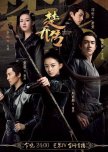
Story
Even if you haven't watched the drama, you've probably heard some of the controversy - they essentially only took about 3/4 (maybe not even...more like a little more than a half) of the original story for the drama. Which just screams, "What in the world were they thinking?" How can anyone have greenlighted this project and said, "Hey, you know what, we're just going to end the drama on a total cliffhanger without a guarantee at all there will be a second season. Better yet, let's include a bunch of useless filler storylines to drag out the middle part of the story even more since we're not telling the whole story anyways." ??? Rule number one for drama production teams - never do multiple seasons for dramas if you have a popular cast that you haven't already bound by contract to bring back (props to the team behind Ode to Joy for realizing this, btw) . Rule number two - if you can tell the whole story in one season, don't drag it out because it just hurts the quality.
The first half of the drama was pretty good - it features an awesome female lead who is multi-dimensional and is willing to claw her way to survive. She's not a Mary Sue - she can have moments where she seems heartless and cold, but she's also had a terrible life and thus has a different world view than most girls her age. The tone of the drama is darker than most because of the heavy material in the story, and I did enjoy that aspect. I have no idea why they added so much nonsense in the second half - for a drama that should have been moving along super fast considering how much plot it needed to cover, the pacing was ridiculously slow.
I was fascinated by the premise of the story and hated how the drama handled it, so I actually went back and read the novel, which I never do, because reading full length novels in Chinese is a bit of a chore for me. I'm glad I did though, because it filled the gaps nicely and at least I can picture in my head how this should have ended. But it also lended a different perspective to the love triangle - I'm not a fan of how the drama skewed it. If you read the novel, this should have been a tale of two loves for our lead, Chu Qiao - the first would be Yan Xun, and the second would be Yuwen Yue. However, the drama pretty much portrayed it so you would be rooting for Yuwen Yue all the way through, which I think does Chu Qiao a disservice. Part of the whole point of the story is her understanding of what love is and how it evolves over time - so that was disappointing. I'm particularly sad we didn't get to see all the cute, truly squee-worthy moments between her and Yuwen Yue becasue I think I pretty much grinned my way through the end of the novel.
But nitpicking over the depiction of the love triangle would be a moot point since the story was incomplete to begin with. Again, I have no idea who thought that would be a great idea. I don't even know if they would have enough material to cover a season 2, to be honest, without dragging things out significantly. If you enjoyed the premise of the story and can read Chinese (or find a translation), go read the novel and get yourself some closure.
Cast
What a waste of a great (young) cast - obviously this isn't one of those dramas with a stellar veteran crew, but the young(ish) leads all have some decent acting chops.
It's amazing how far Zhao Li Ying has come in just a short number of years - she's one of a handful of actresses who stars in exclusively heroine-centric dramas (Princess Agents, Rookie Agent Rouge, Journey of Flower, the upcoming Glamorous Times and The Story of Minglan - all are stories that are centered around the female lead character and her journey). One of the biggest reasons for her success has been her versatility (despite her pixie stature and face) and the fact that she is one of the better actresses for her age group. Chu Qiao was a great role for her as it let her channel her inner female general - but again we go back to the writing - it would have been so much better if she was given the whole story to work with.
Lin Geng Xin was decent as Yuwen Yue - the stoic characters are pretty much a staple of dramaland and I don't think anyone ever does badly in this type of role - but I would like to see him take a meatier role at some point (and I do think he's capable - there's a reason why his career took off after his stint as the 14th prince in Bu Bu Jing Xin). I also think he didn't have the greatest chemistry with Zhao Li Ying, but that could have been the writing more than anything else - a lot of their interactions were way too forced, and not built in an organic manner at all.
But the standout, for sure, was Shawn Dou, who gave an incredibly memorable performance as the complicated Yan Xun. He was able to express every aspect of his character beautifully, and even in the end, after everything he's done, it's almost impossible to hate him because you still feel like he's a product of circumstance. In a world where C-dramaland is dominated by tall, attractive actors in their mid to late twenties who are, for the most part, rather acting-challenged or limited in range, it baffles me how Shawn has not taken off yet. I know he's got a couple of dramas lined up as the main lead, but they're all the typical romance/makjang fare, and I would love to see him in something of substance because he is so talented (I would love to see him work with the Daylight Entertainment team one day a la Zhang Bo).
Shoutout to Li Qin as well who was great in her role - as hard as it was to watch sometimes, she portrayed all the trials and tribulations of her spoiled princess character perfectly. Deng Lun is still really, really green to me - I don't know what it is but he always just comes off a bit awkward in his roles.
Overall
If they had just stuck to the novel material, this would have probably been one of my favorite dramas - but the decision to not film a complete drama is just absolutely baffling. If they do end up making a season 2 (and there isn't any indication that is the case yet - all three of the main leads have projects lined up for the next couple of years - not to mention the fact that some of the rising stars, like Deng Lun, have a heavily packed schedule now too), maybe some of the fury will subside from fans, but for the time being, this is an incomplete production.
Was this review helpful to you?

But clearly I need to have more faith in the people who brought us the gem that is Nirvana In Fire, because Ode to Joy totally blew my mind. Although I grew up here in the States, I have cousins and a lot of acquaintances in China who are in their mid 20s to early 30s, and I know just how hard it is as a young adult in modern China, especially in a big city like Shanghai. The salary that most people get - even in smaller cities - is nowhere proportional to the cost of living (especially for housing), so if you don't have family who can give you that extra allowance every month, it's basically next to impossible to make it in the big city. Forget about the hu kou issue for a second - having a car and a house is now considered the minimum standard in a partner these days, and since young adults usually don't have the money to buy those themselves, it's on the parents to provide. And if you happen to be from the country, or if you have a family who is dependent on you as the bread winner...
Ode to Joy did such an awesome job in taking a group of five unique characters and plopping them in the middle of Shanghai. They captured the struggles and obstacles of the women perfectly (the subtle social commentary was absolutely amazing and so well done in a country where dramas usually tend to act as propaganda for the government). Also - can we get a shout of joy for a great, women-centric drama? If I had one major criticism of this production team, it would be that they've done a pretty lousy job of developing good female characters (the NiF girls were strong and powerful, but way underutilized), but they've corrected that in such a major way with Ode to Joy.
The five women aren't perfect at all - and honestly, there is no miracle where at the end of the drama they've done a complete 180 - they are actually still very much the same women they were at the beginning, but they've learned a lot of hard lessons along the way, and have been influenced greatly by each other. It's a beautiful thing to watch - very rarely do you get such good character development in any drama, and across the board at that! The characters always stay true to themselves - there is nothing contrived - it all feels so organic, both in how their own characters develop, and how their friendship evolves.
Liu Tao's character was probably the hardest to relate to - a brilliant and successful but aloof businesswoman with an unknown backstory - but kudos to Liu Tao's natural warmth and exuberance that shone through to give her character some needed depth. I saw a lot of people complain about Wang Zi Wen's rich girl character but it was her that made this story so refreshing for me - a fu er dai with street smarts is such a joy to watch, especially since she still worked so hard to achieve what she wanted. She used people, sure, but she was usually transparent with her machinations, and she also had a heart of gold. And I thought Wang Zi Wen was great in her portrayal.
Yang Zi was adorable as the happy-go-lucky and simple Ying Ying, and while Qiao Xin was borderline unwatchable in her brief scenes in NiF, I did like her here as the studious Guan Guan (and resident worrywart). In a weird way, she also annoyed me the most, if only because I identified the most with her character and it was jarring seeing her flaws (which I share in spades) dissected and probed.
But Jiang Xin to me was the standout of the group performance-wise (no surprise - she made an absolutely evil character in the Legend of Zhen Huan sympathetic), and it was also her character that spoke the most to me. The situation that she faced with her family is very much a real one in China today (and real life is often worse), and it isn't one that has a real solution, because despite everything, family is family. She came across as such a wise and confident character at first, and little by little, her armor is chipped away, and the vulnerability lying within just breaks your heart.
Also - the Where's Waldo game with cameos from cast members of other Shanying productions was hilarious and so much fun (I will say I had to cheat at times where I could recognize the face but couldn't remember the role that the actor previously played).
I loved how the characters played off of each other and the writing was so smart and well thought out. The story did lag at times, but it's slice-of-life - it's bound to at times, and that's perfectly acceptable. There were times where I was annoyed with each of the characters in turn, but it just showed that they were being very human with their thoughts and decisions, and it often led to a very real life lesson.
The guys definitely took a backseat here, and none of the love lines are permanent (yet), and I loved the way they were used - none of them were princes, but they all helped with the maturation of one of the women in some way. Xiao Xiao (Wang Zi Wen) and her doctor boyfriend (Wang Kai) was a great portrayal of the modern young couple, and I can't wait to see how their relationship develops (or fails) in Season 2 because they still have a mountain of differences to wade through. (They are also so freaking cute - I kind of want to watch When A Snail Loves now just for them). Also - can we please get a show with LIu Tao and Jin Dong in a real love line?
It really isn't easy to tell the story of everyday people to an audience who is jaded and often unsatisfied with the way life is portrayed in dramas, but somehow, Ode to Joy does the impossible and delivers a show that will make you cry, make you laugh, and make you wish that you had that kind of sisterhood in your life. I wouldn't say that the show revolves around friendship, because there is still a lot of friction and misunderstanding even three quarters of the way through between some of the women, and a lot of the lessons that they learn is actually on an individual level, but it's still an integral part of the show.
Props again to the production team who have now proved they can tackle any genre and take it to the next level - I can't wait to see what Season 2 has in store for us!
Was this review helpful to you?

Set in New York, the story continues to follow the unusual pairing of young genius Qin Feng (played by Liu Hao Ran) and his crazy distant uncle Tang Ren (played by Wang Bao Qiang) as they try to crack a serial murder case. As you can imagine, it's hijinks and antics galore as they cause mayhem all around NYC. I'm a little disappointed with Tang Ren's characterization in the film - sometimes his shrillness and unneccessary comments get a little too grating. Hopefuly this is something that director/screenwriter Chen Si Chen will consider when he writes the screenplay for the third film - given that actor Wang Bao Qiang is his close friend, I doubt that he wants to short change him.
The director clearly wanted to create more of a "detective world" in the film, and we are introduced to several international detectives that we will surely see again soon. It's also becoming clearer that Qin Feng is the real star of the story as the young prodigy detective, but they also need Tang Ren's contribution to the comedy side, and I feel like that's going to be harder and harder to balance for future installations.
Still, this was a fun movie and if you enjoyed the ridiculousness of the first I think you'll like this one as well.
Was this review helpful to you?
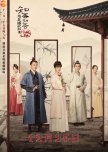
This review may contain spoilers
The Story of Minglan had a lot of buzz going into it, due to the fact that it was 1) a Daylight Entertainment drama, and 2) it would mark the first time that the famous production company would team up with a female liu liang actress, which many saw as an acknowledgement of Liying's acting skills. Not to mention the source novel is quite popular. So expectations were quite high for the drama, especially with the dating rumors circling around the leads at the time. All things considered, this was quite the pleasant surprise. I was not fond of the director's previous works, but the scriptwriters have a good track record, and what we ended up getting was a gorgeous slice of life historical with colorful and memorable characters. It's so rare that we get historicals that are focused on the life of civilians outside the palace (though the palace does play a part), and it was refreshing to see the depiction of day to day life in the household of a low/mid ranking official, against the background of the Song dynasty.
Story:
I loved the first half of Minglan, probably even more after a rewatch. The portrayal of Minglan's journey from neglected child to a young adult yearning - but also fearful - for love was beautiful, as was the parallel of Gu Tingye's journey from rebellious and misunderstood son to a responsible, bold but loyal commander. The antagonistic relationship between the wives, the sisters, the idea of what a woman's role is...they were explored well and really fleshed out.
Romance isn't really at the center of the drama, but it does play an important part, and I absolutely loved how it was played out and how it stayed true to what we knew of Minglan and Gu Tingye's characters. Minglan had three suitors in her life, and as someone who has never really been put first by anyone, it really made sense that Gu Tingye, who was the only who went all out in pursuing her and actively prioritized her, would be the one to win her over.
That said, after the wedding, that's when things began to drag a bit. The episodes became extremely repetitive and drawn out (and Hunan TV probably has a lot to do with it), but the only times we saw the story being moved forward was through the episode previews. The stakes were higher, but rather than enjoying the ride, I often felt frustrated with the lack of plot movement. There was also less development in the couple's relationship, which fell a little stagnant until close to the end.
Still, I loved the detailed glimpse of life in the Northern Song Dynasty, and most of all - Sheng Minglan, who was a wonderful protagonist.
Acting/Cast:
The drama was helped by strong performances across the board, anchored by Zhao Liying's wonderful take on Minglan. There was a quiet dignity in young Minglan, which became more of a forceful but steady quest for justice as the character grew up and realized she had to take action to protect her loved ones. Zhao Liying has a great ability to balance vulnerability with inner strength, and it shone in spades here.
Feng Shaofeng's Gu Tingye was also great, and it was a good reminder of the acting range that he possesses when given the chance. The Sheng family was a delight, with Liu Lin and Gao Lu in particular giving fabulous performances as the bickering wives. Cao Cuifen is my MVP though - I absolutely loved her performance and chemistry with Zhao Liying's Minglan.
Music:
Loved the instrumentals used, and the theme song grew on me over time.
Overall:
If you're a fan of Chinese historicals, would really recommend giving this one a shot. It's a lot quieter, and probably more slow-paced than what you may be used to, but it's a beautiful journey.
Was this review helpful to you?
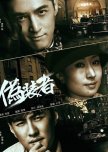
I had huge hopes for this show - if it was well done to the end, it would be a game changer in terms of production quality - but alas, it was not meant to be. Plot holes, annoying characters, and a slower pace killed the second half - and I do think that the show was trying to be smarter than it was, which ultimately didn't work very well. That doesn't mean this was a good drama - I think the performances from the cast and the first half cements this as one of the better c-dramas, but I think I was just disappointed by how low the lows were, considering how good certain parts were.
Story:
The setup was pretty good - the first few episodes set up the characters nicely and you understand the different dynamics at play. I liked how the story unfolded as Ming Tai starts on his journey as a spy and adult. The plot was pretty intricate the and the writing was fairly tight, and I loved seeing the mind games the characters were playing with each other. The antagonists (especially the Chinese ones) had interesting stories and characterizations as well.
The directing was beautiful - this was a show that was, to some extent, very focused on flash and style (they had incredibly beautiful outfits), but it still delivered in substance as well, with several poignantly shot scenes. I love the Ming family and the heartwarming moments that they had in between all the violence and tragedy.
The ShanYing team has said before they haven't really done much with romance in their productions, and I really, really wish that they had decided to scrap that altogether here, because the romance REALLY hurt the quality of the drama. I think I skipped all of Jinyun's scenes starting from episode 20 on, because not only did the actors not have any chemistry, their love story just didn't make any sense. Jinyun's character was also too one-dimensional and made some infuriating decisions, and you never really understood why Ming Tai fell in love with her. I love romance in my dramas, especially in action dramas, but this was one where we could have survived on the love between the siblings alone. And actually, somebody made an abridged version of The Disguiser with all of the romance scenes removed and you don't miss very much at all.
Acting/Cast:
Just like Nirvana In Fire, the ensemble cast was (mostly) outstanding.
To me, Jin Dong was the star of the show - and admittedly, he got the most interesting character in Ming Lou, but his performance was absolutely outstanding. He absolutely owned the role and was able to inject his natural charisma and magnetism into the character.
I love Hu Ge, but I do wonder if both he and Ming Tai may have fared better if the production team went for a younger actor (and I know they wanted Hu Ge, but just sayin'). Ming Tai was a spoiled rich boy and I think Hu Ge did the best that he could in acting as a character who was in his early 20s, but Hu Ge isn't the Hu Ge of ten years ago anymore, and the actor that he is now is much too mature to play that kind of character. Ming Tai was also the least developed character - despite the fact that he is a spy and there is some character development, he wasn't multi-layered like some of the others. But again, I think Hu Ge did a good job, and was especially phenomenal in his scenes with Wang Tianfeng.
Wang Kai's role was a particularly interesting one, and I loved his bromance with Ming Lou. I do think he had more to work with in Nirvana In Fire, but he had a memorable turn as the ever-loyal Ah Cheng. Liu Min Tao killed it as the big sister of the Ming family - she was bossy, naggy, demanding, entitled, and kind-hearted and loved her family. She had some heartbreaking scenes, and Liu Min Tao added such a natural warmth and elegance to her character.
Other standout performances were from Wang Ou as Wang Man Chun (she was such an awesome antagonist), Yue Yang as Liang Zhong Chun (also so, so good), and cute Song Yi as the tragic Yu Man Li (she was still a bit green as an actress, but I loved that there was such a difference between her looks and her abilities). But my favorite performance, aside from Jin Dong's, was probably Liu Yi Jun as Wang Tian Feng, who was absolutely amazing as Ming Tai's mentor. It was such an intense character, but you never felt as if he was overacting. He didn't have a whole lot of screen time, but man did he make every minute count (I squealed when I saw him again in NiF).
Now for Wang Le Jun as Jinyun...I know the actress was injured during the shooting, and that she was in constant pain, so some slack has to be given, but oh my goodness, I cannot remember seeing a drama where an actress has consistently hurt the drama's quality in all of her scenes due to bad acting. Some of this wasn't entirely the actress' fault - the character was also poorly written, but Wang Le Jun's wooden acting didn't help to add any sympathy or understanding to her character. Also didn't help that for whatever reason, Hu Ge lost his acting skills in his scenes with her, which is so, so weird because he has always had good romantic chemistry with his co-stars. While I am grateful the production team moved away from their scenes later on, the damage was already done.
Overall:
This was a good drama - it had some outstanding moments, some great characters, and memorable performances. I just felt like the entire ride was an absolute roller coaster and I never really got over some of the low points. It's one of those dramas that I mourn occasionally, especially when I'm watching a really good drama, because it will remind me what could have been...
Was this review helpful to you?

Jackie Chan stars as a railroad worker who works on a railway from Tianjin to Nanjing that serves as an important transportation route for the Japanese, and he leads a small group of fellow railroad workers in retaliating against the Japanese. Initially, they only rebel in small ways - stealing supplies from the Japanese, playing pranks on the soliders, etc., but they are driven by a growing desire to contribute more to the cause. No one around takes them seriously though, believing that there isn't really anything that a regular person can do to fight against what seems to be a losing battle.
Jackie's willingness to embrace the fact that he's older now has served him well in recent years - his character in this movie is a man of middle age who has a lost a lot in his life, and wants to see a better world for his daughter. He is portrayed as a normal man who uses his experience with working on the railroad (and of course, the usual Jackie ability to use various everyday items as tools and weapons) and leads by example. He's a man of few words, and maybe not the brightest bulb in the box, but his courage speaks volumes to those around him.
Tao and Jaycee Chan play two of the members of Jackie's crew, and both are street-smart, supporting characters who are crucial to helping Jackie accomplish his objectives. I liked both performances - neither tried to do too much with their roles and the action and humor was well-suited for their respective characters. If they tried to look cool, it was intentional humor, so it worked. I know Darren Wang is listed as part of the cast, but his part is pretty brief.
But I was most impressed by Wang Kai, who apparently has a career in comedy if he ever wants to change his career path. I found myself trying to hold in my laughter numerous times throughout his scenes. He's a fantastic actor, but I was still very impressed by how well he balanced the humor out with his character, who was an army sniper turned restaurant owner after being completely disillusioned with how the war was going (his comedic timing is great). He and Jackie had the meatier roles by far, which is to be expected as they are the stronger actors here.
This isn't a movie that takes itself too seriously - it's an action comedy set in a remarkably serious period in Chinese history, so the contrasting tones may be a bit jarring at times, but I found it to be a nice breath of fresh air and a great take on what it means to be a hero.
Was this review helpful to you?

Story:
We get to see the five neighbors' stories continue - basically picking up where we left off in the first season, with the five women continuing on their respective journeys. Whereas the first season focused a lot on careers and finding yourself in a city as big as Shanghai, the second season (imo) focuses a lot more on romantic and family relationships, and I think that was kind of where I just started losing interest.
Seeing romantic interests blossom is fun and all, but a lot of what came after was the manufactured drama that I was so happy to see the first season avoid. And I get it - romantic relationships in China can be crazy because it's not just a relationship between the couple - it's a potential marriage between families, but the issues just were neverending (and sometimes it really didn't make any sense - a character would get randomly angry and you don't even know why). Relationships are at its best when it makes you grow as a person - not when it makes you more irrational and immature.
Ying Ying (and pretty much everyone in that particular story thread) drove me batty. I was so happy that she had gotten over her bad experience in Season 1 and learned more about herself, but it's like she had forgotten about all the self discovery that she had done. Fan Sheng Mei, who I thought had finally accepted life on her terms, also had a really frustrating arc, though I still kind of understood her struggle.
And An Di's entire thread was just ludicrous and nonsense - I read online that a lot of Chinese viewers were basically skipping over her scenes (this isn't Liu Tao's fault at all - it's because they gave her a super frustrating storyline).
Speaking of An Di, I appreciate beautiful fashion in dramas as much as anyone does, but it becomes borderline distracting when a character changes five outfits in "one" day, especially when the outfits are a little overdone and leaning on the high fashion side versus what someone would actually wear in real life. I think that was also the problem with An Di's storyline - it felt very shallow.
Qu Xiao Xiao saved the show for me, because she was just as splendidly outrageous and compassionate as she was in Season 1, and it was nice to see Guan Guan come out of her shell and blossom (but she really needs to use that backbone on Ying Ying once in a while, I'm just saying).
But we still got a great dose of friendship (and the love-hate that goes into it) between the five women, which is really the saving grace for the show. And the script, despite its obvious flaws, still did provide some great social commentary (with one specific issue really taking off). I think they tried to go a little too flashy and polished for parts of this drama, and it made me miss the slice of life style that we got in the first season. Sure, the pace was slower, but it felt organic.
Acting/Cast:
The actresses were pretty good, per usual, with Liu Tao flexing a bit more of her acting muscle than she did in the first season. Yang Zi was frustrating and adorable simultaneously, and Wang Zi Wen killed it even more than she did in Season 1. Jiang Xin is an amazing actress and I will continue to beat this drum forever and ever until everyone in the world realizes this. And major props to Qiao Xin, who has grown a lot as an actress (does anyone else remember her stint in Nirvana In Fire? She was so noticeably awful in that role and so, so green).
I was disappointed by Yang Shuo, who was so charismatic in his limited scenes in Season 1. He got a lot more screentime this season, but it actually turned out to be a bad thing, because the charm kind of turned smarmy and I think he overacted quite a bit in some scenes (I was paying a lot of attention to his acting because of the rumors that he may be the leading man in Zhao Li Ying's upcoming drama - as of now I'm really hoping this isn't true).
The other actors were just okay - but Wang Kai was by far (well, duh) the best actor among the romantic interests - in part because his character was a lot more "normal" than the other guys, but also because Wang Kai sells his characters well. Newcomer to the show Deng Lun was cute if a little too stoic.
Music:
There's basically a song that plays every other scene and it got distracting after a while. I get that Ying Ying has her theme song but do they really have to play it every single time? I think they went a little overboard with everyone having "their" song. Because some of the lyrics were really specific and explained the situation and feelings in a really detailed way, it kind of killed any semblance of emotional subtlety. I feel like the audience should get the chance to figure out they feel about a scene instead of being told how they should feel.
I honestly don't find this all that rewatchable, because I know how angry I get at some of the scenes and characters. There are some cute parts that I would fish out, but I definitely wouldn't marathon it again.
This isn't a bad drama - but it just doesn't live up to the first one, and I'm assuming that Season 3 is just going to be even more drama (because they need something to fill the story with).
With all of that said - there are still a lot of things that it does well compared to your average drama, so I still recommend giving it a shot, especially if you've watched the first season already.
Was this review helpful to you?

The success of the drama, whcih aired under rather unfortunate circumstances and couldn't promote properly at first (the cast didn't even know the drama had aired until it was already showing on TV), is largely due to the scripterwriter Wang Juan and the performances of the young cast.
Wang Juan, who is coming off of the huge success of Joy of Life, is quickly becoming one of the most recognizable names among Chinese drama scriptwriters. He has a very distinctive style, and is great at injecting sharp humor as well as unexpected surprises, with a lot of wit and intelligence, into his scripts. That's what grabbed me from the get go for Young Blood - despite the issues I had with the styling, it was clear from Episode 1 that where the drama would shine would be the writing.
It's not that this is necessarily an original story and plot, but it's written in a way where you're constantlying going, "What just happened?!". The characters are immensely interesting and the team that they form, the way the characters grow, and the relationships that form...it was all very well done.
Huge props to the relatively young cast, who all did a phenomenal job with their roles. The acting was solid across the whole group, and Zhang Xincheng and Zhou Yutong in particular really shined in their performances. However, the star of the show for me was Wang Kuan (played by Wang Youshuo), who is probably one of my favorite SMLs ever (if not my favorite). And his dynamic with Su Xiaotong's Jing Jing was just the cutest thing ever.
Super excited for a possible S2 (which we will hopefully get - Wang Juan and the cast have all openly said that they are onboard. However, with Wang Juan being in high demand now, we'll see where it goes). One of the best things when it comes to watching dramas is when you discover a hidden gem, and this is exactly what the show was.
Was this review helpful to you?
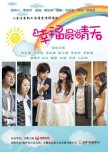
Some of the plot lines felt like filler material - really, I just cared about watching Yun Jie and Yong Yong and could have done without all the other elements, but the main relationship was great and I loved watching their journey together. Mike is one of the few Taiwanese male leads who give consistently decent performances - he may not be very versatile, but he has nailed down the sterotypical male lead role down to a tee and is usually great at generating chemistry with his costars. This was probably my favorite performance from him though, and a lot of that had to do with the way his character was written as well.
Janine Chang was the highlight for me and this performance was really my introduction to her - I loved her subtle, understated performance. The character isn't original by any means - we've probably seen many similar female leads, but there was a sincerity to Yong Yong that just made her really likeable for me.
Is it bad if I say this is probably my favorite Li Yi Feng performance considering how many works he's had after this project as the main lead? I don't think I will ever be sold on him as a male lead - acting aside, he also lacks charisma and presence, but as the younger brother to Mike's character, he's cute and earnest, which is really all the role asks for. It's funny - it took me several years to realize that he was actually in this drama, and when I did, I was a little flabbergasted that his career blew up in such a huge manner.
This was a really sweet drama that had a poignancy we don't see often from most T-idol dramas. It went a little under the radar in terms of popularity seeing as it isn't anything original, but if you enjoy the genre, I would suggest giving this a shot.
Was this review helpful to you?









